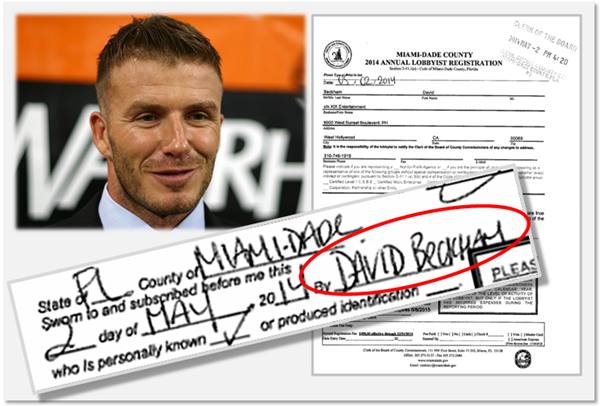May 16, 2014 •
New York City Amends Lobbying Law, Effective May 16, 2014
In late 2013, the New York City Council passed Local Law 129 of 2013, making many changes to current lobbying law in the city and surrounding boroughs. Many of the new law’s provisions are effective today, May 16, 2014. The […]
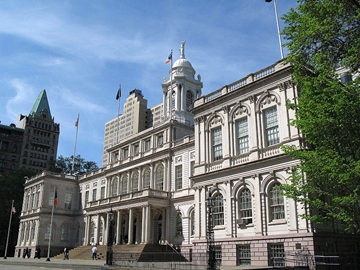
In late 2013, the New York City Council passed Local Law 129 of 2013, making many changes to current lobbying law in the city and surrounding boroughs. Many of the new law’s provisions are effective today, May 16, 2014.
The definition of lobbying is revised to include attempts to influence legislation not yet introduced, legislation at the state and federal level, and mayoral executive vetoes. It is also revised to include attempts to influence the agenda or calendaring of a meeting of a board or commission. The revised definition excludes architects and engineers as lobbyists under certain parameters, and the law now imposes a $10,000 registration threshold for such individuals should they undertake lobbying activities. The registration threshold for all other lobbyists is $5,000.
Local Law 129 of 2013 requires more detailed disclosure on the statement of registration and on periodic reports. The new law further establishes a first-of-its-kind amnesty program, allowing noncomplying lobbyists to enroll in the program and be exonerated of late filing fees and applicable civil and criminal penalties dating back to December 10, 2006.
Provisions taking effect in the future include a mandatory lobbyist training program and the practice of the city clerk reviewing sources of information such as state lobbyist filings and the Doing Business Database to identify lobbyists required to register who have not done so.
Photo of the New York City Hall courtesy of Momos on Wikimedia Commons.
May 16, 2014 •
Discover a Great Compliance Group on LinkedIn!
If you are a government relations professional who is interested in the latest news on compliance, we encourage you to join our Government Relations Compliance LinkedIn Group! You can discover what colleagues are talking about, and how they are solving […]
If you are a government relations professional who is interested in the latest news on compliance, we encourage you to join our Government Relations Compliance LinkedIn Group!
You can discover what colleagues are talking about, and how they are solving the challenges in complying with government rules and regulations for lobbying, grassroots lobbying, political contributions, and procurement. Take a look and join the conversation!
May 16, 2014 •
News You Can Use Digest – May 16, 2014
National: GOP Civil War Rages in Senate Primary Battles The Center for Public Integrity – Dave Levinthal | Published: 5/8/2014 Hard-line conservative groups have together spent nearly three dollars attacking Republican candidates for every one dollar spent criticizing Democrats, according […]

National:
GOP Civil War Rages in Senate Primary Battles
The Center for Public Integrity – Dave Levinthal | Published: 5/8/2014
Hard-line conservative groups have together spent nearly three dollars attacking Republican candidates for every one dollar spent criticizing Democrats, according to a Center for Public Integrity analysis. The dichotomy illustrates the family feud between mainstream Republicans and their tea party-affiliated cousins, many of whom have forced GOP incumbents into expensive primary fights because they believe the candidates are not conservative enough.
Koch Brothers’ Americans for Prosperity Plans $125 Million Spending Spree
Politico – Byron Tau | Published: 5/9/2014
Americans for Prosperity expects to spend more than $125 million this year in support of conservative candidates. The plans, combined with those of other groups in the political operation affiliated with the billionaire industrialists Charles and David Koch, more closely resemble the traditional functions of a national political party than a network of private nonprofit groups. The goal of the network is a long-term movement to expand the political playing field for conservatives, both into new states and into non-traditional demographics.
From the States and Municipalities:
Arizona – Tom Horne Campaign Finance Case to Move Forward
Arizona Capitol Times – Jeremy Duda | Published: 5/14/2014
Yavapai County Attorney Sheila Polk rejected an administrative judge’s conclusion that there is not enough evidence to show Arizona Attorney General Tom Horne and Kathleen Winn, who ran an independent expenditure committee during the 2010 election, illegally coordinated their activities. Polk’s office maintains that records show the two illegally collaborated on ads attacking Horne’s Democratic opponent. Polk has ordered Horne to return about $400,000 to donors and amend his campaign finance reports to properly reflect the contributions.
California – Capitol Alert: California Senate passes bill banning fundraisers at lobbyist homes
San Luis Obispo Tribune – Laurel Rosenhall (Sacramento Bee) | Published: 5/12/2014
The California Senate passed a bill that would ban lobbyists from holding campaign fundraisers at their homes for candidates and elected officials. Senate Bill 1441 now moves to the Assembly. A prominent Sacramento lobbyist and nearly 40 politicians got in trouble earlier this year with the Fair Political Practices Commission for home-based fundraising events that exceeded a $500 limit.
California – Gov. Brown Signs Bill to Shed Light on Political ‘Dark Money’
Los Angeles Times – Patrick McGreevy | Published: 5/14/2014
Nonprofit organizations that make political contributions in California will have to disclose more information about the source of their money under a bill signed into law by Gov. Jerry Brown. Senate Bill 27 requires nonprofits to disclose the names of donors who give them $1,000 or more to spend on political activity, if the group makes contributions of more than $50,000 in a year, or $100,000 over four years. The disclosure requirement takes effect for donations made after July 1 of this year.
Florida – Lobbyists at Water Districts Must Register and Disclose under New Ethics Bill
Miami Herald – Dan Christensen | Published: 5/10/2014
Lobbyists hired to influence spending and policy at Florida’s five water management districts must register and disclose their clients under ethics reforms passed by the state Legislature. If signed into law by Gov. Rick Scott, the bill would for the first time apply state lobbying regulations to some special-purpose governments that raise and spend hundreds of millions dollars every year.
Missouri – Flood Flowing, Ethics Bills Dying as Missouri Legislature Nears Adjournment
St. Louis Post-Dispatch – Virginia Young | Published: 5/14/2014
Missouri lawmakers are feted with free food in the Rotunda, hearing rooms, and area restaurants. Big-ticket items outside the Capitol, such as expensive dinners, sporting event tickets, and out-of-state travel, helped push the total value of the gifts to nearly a million dollars’ worth in 2013, according to state Ethics Commission records. That Is unlikely to change as legislators have stymied bills that would ban or limit the gifts they receive.
New York – Inside Moreland: Documents reveal details of lawmakers’ spending
City & State – John Lentz, Matthew Hamilton, and Morgan Pehme | Published: 5/11/2014
To date, there has been considerable speculation about what exactly the recently disbanded Moreland Commission on Public Corruption investigated during the months it was in operation, but few specifics have been disclosed to the public. Now, commission documents show its investigators sought to determine if New York lawmakers were spending the contributions they received for legitimate campaign-oriented purposes, or whether any money was going to their personal use, in violation of state law.
Ohio – McGinty, DeWine Accuse Youngstown Mayor, Mahoning County Official of Racketeering
Cleveland Plain Dealer – John Caniglia | Published: 5/14/2014
Youngstown Mayor John McNally and Mahoning County Auditor Michael Sciortino were indicted on corruption charges including bribery, conspiracy, and tampering with records. The indictment outlines a series of illegal activities related to a plan to move the offices of the county Department of Job and Family Services. McNally and Sciortino were indicted four years ago on related charges, but the case was dismissed. A judge said then that the charges could be refiled. Prosecutors said at the time their inability to obtain tape recordings held by the FBI and provide them to defense lawyers made it impossible to proceed with the case.
Oklahoma – Oklahoma Secondary School Activities Association to Pay $1,200 Fine
The Oklahoman – Nolan Clay | Published: 5/9/2014
The Oklahoma Secondary School Activities Association agreed to stop providing free football and basketball playoff tickets to state legislators, and will pay $1,200 in civil penalties for not disclosing the gifts to the state Ethics Commission for the last three years. The association was required to disclose the gifts once it started using lobbyists. It continues to blame two former lobbyists for the disclosure failure.
Pennsylvania – Candidates’ Parents’ Mutual Donations
Philadelphia Inquirer – Jonathan Tamari | Published: 5/13/2014
During Kevin Strouse’s bid for congressional seat from Pennsylvania, his parents, who had never before donated to federal candidates beyond the commonwealth, sent money to Democrats in tight congressional races in California, Colorado, Florida, and Illinois. Days before or after, those candidates’ parents sent nearly identical contributions, usually for the maximum allowed, to Strouse’s campaign. The donations appear legal, campaign finance experts say, though some said any agreement among the parents to trade donations could be viewed as an attempted end run around contribution limits.
South Carolina – Judge to AG Wilson: Stop SLED and grand jury probe of House Speaker Harrell
The State – John Monk | Published: 5/12/2014
A judge dismissed allegations of corruption against South Carolina House Speaker Bobby Harrell, ruling such a case must first be considered by a legislative panel before state prosecutors could touch it, and saying a grand jury was improperly empaneled. The grand jury had been considering whether Harrell should be indicted on allegations he used campaign funds for personal use. Critics and lawyers following the case said it was a rare, if unprecedented step for a judge to halt a grand jury investigation.
Vermont – AG Clarifies 2014 Campaign Contribution Limits
Burlington Free Press – Nancy Remsen | Published: 5/14/2014
Vermont Attorney General William Sorrell said the state’s campaign contribution limits will remain the same through the end of the year. The secretary of state’s office asked for the formal opinion after the Legislature passed an updated campaign finance law. The law had an error making it appear there was a gap between the date the old limits expire and January 1 when the new caps take effect.
Wisconsin – Federal Appeals Court Tells Wisconsin Regulators That Campaign Finance Laws Went Too Far
Minneapolis Star Tribune – M.L. Johnson (Associated Press) | Published: 5/14/2014
The Seventh Circuit U.S. Court of Appeals struck down major provisions of Wisconsin’s campaign finance law as unconstitutional. The ruling said state elections officials had overstepped their bounds by prohibiting spending by corporations, setting limits on how much they could raise for affiliated political committees, and establishing burdensome rules for groups that merely mentioned candidates’ names in ads.
Wisconsin – Mistake May Bar Lobbyists from Helping with Fundraising
Milwaukee Journal Sentinel – Patrick Marley | Published: 5/8/2014
State election officials said Wisconsin lawmakers may have inadvertently toughened campaign finance rules by barring lobbyists from passing on campaign donations from their clients. Others disagree with that interpretation. The Government Accountability Board will take up the issue on May 21, but the matter may ultimately be decided by the courts.
 State and Federal Communications produces a weekly summary of national news, offering more than 80 articles per week focused on ethics, lobbying, and campaign finance.
State and Federal Communications produces a weekly summary of national news, offering more than 80 articles per week focused on ethics, lobbying, and campaign finance.
News You Can Use is a news service provided at no charge only to clients of our online Executive Source Guides, or ALERTS™ consulting clients.
The 7th Circuit U.S. Court of Appeals has declared portions of the state’s campaign finance laws restricting issue advertising unconstitutional. Wisconsin Right to Life Inc. and its state political action committee sued the Government Accountability Board (GAB) to prevent enforcement […]
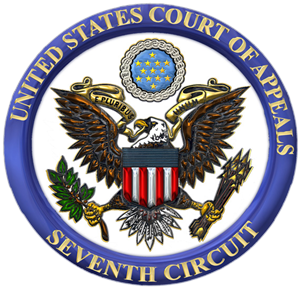
The 7th Circuit U.S. Court of Appeals has declared portions of the state’s campaign finance laws restricting issue advertising unconstitutional. Wisconsin Right to Life Inc. and its state political action committee sued the Government Accountability Board (GAB) to prevent enforcement of state statutes and rules against issue advocacy groups spending money for political speech independently of candidates and parties.
The decision prevents GAB from enforcing both the state’s ban on political spending by corporations and the amount a corporation may spend on fundraising for an affiliated political action committee. The ruling will also affect a secret John Doe investigation into conservative organizations suspected of illegally coordinating with Gov. Scott Walker’s campaign during the state’s partisan recall elections.
May 14, 2014 •
California Governor Signs “Dark Money” Bill
Gov. Jerry Brown has signed a bill to close “dark money” loopholes used to avoid disclosure of campaign contributors. Senate Bill 27 requires large donations from nonprofits and other multipurpose organizations to be disclosed. The top 10 contributors to state […]
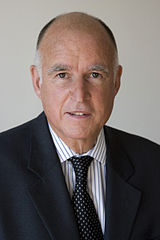
Gov. Jerry Brown has signed a bill to close “dark money” loopholes used to avoid disclosure of campaign contributors.
Senate Bill 27 requires large donations from nonprofits and other multipurpose organizations to be disclosed. The top 10 contributors to state committees will now be posted online by the Fair Political Practices Commission.
The bill becomes effective immediately, but with a delayed operative date of July 1, 2014.
A new Utah state law requiring independent expenditure reporting for political spending became effective today. House Bill 39 requires all persons and entities, except political parties, to file independent expenditure reports with Utah’s chief election officer within 30 days after […]
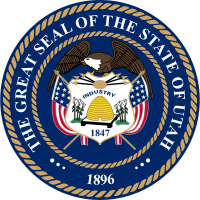
A new Utah state law requiring independent expenditure reporting for political spending became effective today. House Bill 39 requires all persons and entities, except political parties, to file independent expenditure reports with Utah’s chief election officer within 30 days after the day on which a person or entity has made a total of at least $1,000 in independent expenditures during an election cycle.
Another provision of the new law is the requirement to retain records related to the filings for two years, including all independent expenditures, receipts, and donations described in the reports. New definitions concerning independent expenditures are now codified, including telephone bank, which is defined as “500 or more identical or substantially similar telephone calls within any 30-day period.” Fines from $100 to $1000 can be imposed for violations.
The Government Accountability Board (GAB) has concluded a recently signed law allowing lobbyists to personally give campaign contributions a couple of months earlier also prohibits them from providing such contributions on behalf of clients at any time. Whether by design […]

The Government Accountability Board (GAB) has concluded a recently signed law allowing lobbyists to personally give campaign contributions a couple of months earlier also prohibits them from providing such contributions on behalf of clients at any time.
Whether by design or by drafting error, a late amendment to Senate Bill 655 removed the provision to allow a lobbyist to deliver a client’s contribution at any time.
GAB will review the matter at its meeting on May 21, 2014. The Legislature would have to reconvene to fix a drafting error.
Delaware Lt. Gov. Matt Denn recently announced his candidacy for attorney general in 2014. If he is elected in November, the office of the lieutenant governor would be vacant until 2016. Delaware law has no provision to address such a […]

Delaware Lt. Gov. Matt Denn recently announced his candidacy for attorney general in 2014. If he is elected in November, the office of the lieutenant governor would be vacant until 2016.
Delaware law has no provision to address such a vacancy, so legislators in both houses have introduced bills for a constitutional amendment mandating a special election in these and similar circumstances.
Legislators can pass a constitutional amendment calling for a special election, but they must pass the bill twice. In order to accomplish this before the 2016 general election, the Legislature must pass the first part of the amendment by June 30, 2014.
May 9, 2014 •
Colorado General Assembly Passes Senate Bill 14-217
Colorado state legislators recently passed a bill aimed at increasing lobbying transparency. Senate Bill 14-217 passed the House by unanimous vote on May 7, demonstrating bipartisan support for changes in lobbyist disclosure requirements. The bill requires lobbyist subcontractors receiving business […]
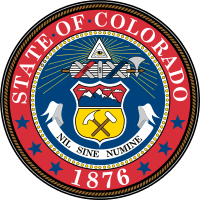
Colorado state legislators recently passed a bill aimed at increasing lobbying transparency. Senate Bill 14-217 passed the House by unanimous vote on May 7, demonstrating bipartisan support for changes in lobbyist disclosure requirements.
The bill requires lobbyist subcontractors receiving business from a professional lobbyist to report subcontracting business on their annual disclosure statements though such information is contemporaneously reported on the professional lobbyists’ disclosure statements.
Another legislative provision requires lobbyists to update their registration statements within 24 hours of lobbying for a new client or subcontracting for another lobbyist. Per its design, SB 217 effectively closes a lobbying loophole by allowing the public to connect the lobbyists who subcontract for lobbying firms to the clients hiring such firms.
If signed by Gov. Hickenlooper, the bill will become effective July 1, 2015.
May 9, 2014 •
David Beckham Registers as Miami-Dade Lobbyist
Just over a month ago, the Miami-Dade Commission on Ethics and Public Trust cleared David Beckham of a complaint charging he violated county ethics law by failing to register as a lobbyist. At the time, Beckham’s meetings with Miami-Dade […]
Just over a month ago, the Miami-Dade Commission on Ethics and Public Trust cleared David Beckham of a complaint charging he violated county ethics law by failing to register as a lobbyist. At the time, Beckham’s meetings with Miami-Dade Mayor Carlos Gimenez were characterized as “meet and greets” regarding potential interest in bringing a Major League Soccer franchise to Miami. Once the plans start to take shape, however, individuals meeting with county officials would need to register as lobbyists, according to the Commission’s report.
Now, with potential sites being discussed, Beckham and his business partner Simon Fuller have registered as county lobbyists ahead of their meeting with county commissioners. But, the Miami-Dade Board of County Commissioners may not be the only government body to need convincing on stadium site approval. One of two potential waterfront stadium sites is under the city of Miami’s jurisdiction, and Miami Mayor Tomas Regalado has cautioned voter approval may be required.
David Beckham’s Lobbyist Registration, courtesy of the Miami Herald.
Photo of David Beckham courtesy of Paulblank on Wikimedia Commons.
May 9, 2014 •
Maine Legislature Considering Special Session
Despite the adjournment of the Maine Legislature on May 2, 2014, legislators are still debating issues. Republican leaders are urging Democrats to reconvene for a special session to address a funding crisis for the state’s nursing homes.

Despite the adjournment of the Maine Legislature on May 2, 2014, legislators are still debating issues.
Republican leaders are urging Democrats to reconvene for a special session to address a funding crisis for the state’s nursing homes.
May 9, 2014 •
News You Can Use Digest – May 9, 2014
Federal: Federal Election Commission Approves Bitcoin Donations to Political Committees Washington Post – Matea Gold | Published: 5/8/2014 The FEC unanimously ruled that political committees could legally accept bitcoin donations. The commission also affirmed that political committees could buy and […]

Federal:
Federal Election Commission Approves Bitcoin Donations to Political Committees
Washington Post – Matea Gold | Published: 5/8/2014
The FEC unanimously ruled that political committees could legally accept bitcoin donations. The commission also affirmed that political committees could buy and sell the digital currency as an investment, as long as they turned those proceeds into dollars before spending them. But after the vote, individual commissioners offered conflicting views on whether their decision limits bitcoin donations to small amounts.
Lobby Cash Goes Underground in PR Boom
The Hill – Megan Wilson | Published: 5/7/2014
While traditional lobbying revenue hit its lowest point in four years in the first months of 2014, according to the Center for Responsive Politics, industry insiders say those statistics miss the hundreds of millions of dollars that are flowing to firms that are not registered to lobby. Companies and industries are increasingly using public relations for a broad array of tasks. Unlike lobbyists, public affairs firms are not required to report their clients, specific activities, or revenue, so the amount of money they take in is hard to determine.
Lobbying 101: K Street goes back to school
Politico – Byron Tau | Published: 5/7/2014
Two brand-new programs will offer aspiring lobbyists and K Street veterans alike a chance to learn new skills and beef up their resumes. George Washington University has instituted a master’s degree with a focus on global advocacy and lobbying. The Public Affairs Council unveiled a certificate program aimed at giving mid-career professionals a chance to expand their expertise and improve their management skills. Other established programs include the Association of Government Relations Professionals’ Lobbying Certificate Program and the Public Affairs and Advocacy Institute at American University.
From the States and Municipalities:
Florida – Miami-Dade Lobbyist in Middle of FBI Sting against Mayors Pleads Guilty
Miami Herald – Jay Weaver | Published: 5/7/2014
Richard Candia, a lobbyist caught up in a FBI sting that also snared two South Florida mayors, pleaded guilty to honest services fraud. The undercover operation revolved around a bogus federal grant program that prosecutors say was designed to line the pockets of the mayors, Candia, and another lobbyist instead of benefiting their cities. Under his plea agreement, Candia is expected to be a key witness for the prosecution in the upcoming trial of former Miami Lakes Mayor Michael Pizzi.
Kansas – Brownback Dismisses Reports of FBI Investigation of Associates as Smear Campaign
Wichita Eagle – Bryan Lowry | Published: 5/5/2014
Kansas Gov. Sam Brownback dismissed reports of an FBI investigation into the activities of his former chief of staff, David Kensinger, as a smear campaign. Sources have said three lobbyists and a former state official were interviewed about whether Kensinger and others have been involved in “pay-to-play’ schemes. Two of the interviewees said they were pressured and intimidated by Kensinger to support and donate to certain candidates. But another said no quid pro quo took place.
Kentucky – In Reversal, Kentucky Legislative Ethics Commission Finds Former Lawmaker John Arnold Guilty
WFPL – Jonathan Meador | Published: 5/7/2014
In the face of a public outcry, the Kentucky Legislative Ethics Commission revisited its sexual-harassment case against former state Rep. John Arnold, finding him guilty of three ethics violations and imposing a $3,000 fine. When the commission originally heard the complaints, the hearing ended in a vote of four-to-one that Arnold was guilty. That vote was insufficient for a finding of guilt because the panel has nine members and five votes are needed to take action. That decision led to much public criticism and prompted leaders from both parties to call on the commission to re-hear the case.
Louisiana – Federal Judge Throws Out Campaign Donor Limits for Super PAC Supporting US Sen. David Vitter
Columbus Republic – Melinda Deslatte (Associated Press) | Published: 5/2/2014
A federal judge barred Louisiana from enforcing its $100,000 cap on donations in a four-year election cycle to a super PAC formed by a lawyer who has said it will advocate for U.S. Sen. David Vitter’s 2015 gubernatorial campaign. U.S. District Court Judge Martin Feldman said the state’s contribution limit was unconstitutional for a group that does not coordinate with candidates and “engages only in independent expenditures,” a ruling that could have widespread implications across Louisiana elections.
Missouri – Familiar Impasse Threatens Ethics Measures
Columbia Daily Tribune; Associated Press – | Published: 5/4/2014
Opposition has once again emerged to suggest ethics reform is at an impasse at the Missouri General Assembly. During each of the past two sessions, bills to curb lobbying have been derailed in the Senate by Democratic attempts to reinstate campaign contribution limits. Both sides show no signs of backing down before lawmakers adjourn on May 16. A stalemate means Missouri would continue to be the only state that allows the trio of unlimited contributions to candidates, unlimited gifts from lobbyists, and no waiting period before elected officials can lobby.
Montana – GOP Candidate Benefiting from Super PAC He Founded Takes Heat from Fellow Republicans
Huffington Post – Amanda Terkel | Published: 5/7/2014
The decision by Special Operations for America to support Ryan Zinke, a U.S. House candidate in Montana, is not exactly surprising. Zinke founded the super PAC himself two years ago. The group has been running ads touting his candidacy and was even encouraging people to back him before he officially jumped into the race. The two were literally so close that at one point, the super PAC was renting office space from Zinke in a building across the street from his house.
New Jersey – Analysis: Ethics rules don’t keep ex-BPU officials from related industries
Bergen Record – Jean Rimbach | Published: 5/6/2014
Despite ethics rules on the books, top New Jersey Board of Public Utilities (BPU) officials routinely move quickly and easily into the industries that once had cases before them. Unlike some other states, New Jersey has no waiting period, during which departing commissioners face a prohibition on taking a job with a regulated utility, leaving open the opportunity for immediate employment with companies they oversaw. And decisions on what constitutes a banned activity in a post-BPU job are made case by case.
Rhode Island – GTECH Was a Corporate Sponsor for R.I. Senate President Pavia Weed’s Trip to Spain
Providence Journal – Katherine Gregg | Published: 5/2/2014
At least a dozen companies and trade associations that had lobbyists at the Capitol last year provided money to the Senate Presidents Forum, which paid for Rhode Island Senate President Teresa Paiva Weed’s trip to Spain. The state Ethics Commission has placed limits on gifts from “interested” parties, defined as any person or an entity that has a direct financial interest in a decision the public official is authorized to make. Paiva Weed believes such trips provide opportunities to confer with counterparts who face the same kinds of issues as Rhode Island. “I did not have one-on-one meetings with [any] lobbyist,” said Paiva Weed.
Rhode Island – Target 12 Investigation Triggers RI Probe of 38 Studios Lobbying
WPRI – Tim White and Ted Nessi | Published: 5/5/2014
Rhode Island Secretary of State Ralph Mollis will investigate whether 38 Studios, the video game company founded by former Boston Red Sox pitcher Curt Schilling that went bankrupt in 2012, violated state lobbying laws. According to WPRI, 38 Studios did not register any lobbyists with the state while the company was active in Rhode Island, as required by law. But a contract uncovered by the television station showed 38 Studios had agreed to pay $300,000 per year to an associate of the former House Speaker Gordon Fox to work with government agencies and officials.
Texas – Ken Paxton’s Business List Has Surged Since He Entered Legislature
Dallas Morning News – Gromer Jeffers, Jr. | Published: 5/4/2014
Since he joined the Legislature in 2003, Texas Sen. Ken Paxton, who is running for state attorney general, has started or become part of 28 business ventures. Paxton, like other lawmakers, has voted on measures that could affect his personal holdings. He has declined to say how much his net worth has grown since he joined the Legislature, and he has refused to release his federal tax returns. The state requires officeholders to list only broad ranges that their income and investments fall in, so it is difficult to say how extensive Paxton’s business holdings are.
Wisconsin – Conflicting Rulings Cloud Wisconsin Campaign Finance Inquiry
New York Times – Monica Davey | Published: 5/7/2014
A U.S. appeals court ruled Wisconsin investigators can continue a secret probe into possible campaign finance law violations by conservative groups in the state. The order stopped for now enforcement of a federal judge’s ruling that the 20-month inquiry must be halted, and records and property seized by investigators returned to the Wisconsin Club for Growth, the group that sued to halt the probe.
Wisconsin – Wisconsin to No Longer Have Aggregate Campaign Funding Limits after Federal Lawsuit Settled
Minneapolis Star Tribune – Scott Bauer (Associated Press) | Published: 5/8/2014
Wisconsin has reached a settlement in a federal lawsuit challenging the state’s limits on how much individuals can contribute to campaigns. The state law prohibits donors from giving more than $10,000 a year to all candidates. The settlement says in light of a U.S. Supreme Court ruling, Wisconsin’s law is unconstitutional so donors now will be able to spend as much as they want in aggregate to PACs and political parties.
 State and Federal Communications produces a weekly summary of national news, offering more than 80 articles per week focused on ethics, lobbying, and campaign finance.
State and Federal Communications produces a weekly summary of national news, offering more than 80 articles per week focused on ethics, lobbying, and campaign finance.
News You Can Use is a news service provided at no charge only to clients of our online Executive Source Guides, or ALERTS™ consulting clients.
May 8, 2014 •
FEC AO Concludes Bitcoins Contributions OK
In an advisory opinion released today, the Federal Election Commission (FEC) acknowledged bitcoins as an acceptable form of political contribution. The FEC determined Make Your Laws PAC, Inc. can accept and purchase bitcoins. The commission concluded “bitcoins are ‘money or […]

In an advisory opinion released today, the Federal Election Commission (FEC) acknowledged bitcoins as an acceptable form of political contribution. The FEC determined Make Your Laws PAC, Inc. can accept and purchase bitcoins.
The commission concluded “bitcoins are ‘money or anything of value’ within the meaning of [2 U.S.C. §431(8)(A)(i)].” It also stated bitcoin contributions may be held in a “bitcoin wallet until the committee liquidates them” and the valuation of a bitcoin donation is made “at the time the contribution is received.” However, the commission did not have the requisite four affirmative votes to decide whether bitcoin contributions could be used to acquire goods or services.
According to the Washington Post, FEC Chairman Lee Goodman said, “Just philosophically, I think it’s important for the FEC to embrace technology and innovation, and that’s what we did today.”
The Assembly has passed a bill to ban fundraisers at the homes of lobbyists. Assembly Bill 1673 passed without a no vote and without debate. The bill modifies the definition of “contribution” by removing a $500 exception for home or […]

The Assembly has passed a bill to ban fundraisers at the homes of lobbyists. Assembly Bill 1673 passed without a no vote and without debate.
The bill modifies the definition of “contribution” by removing a $500 exception for home or office fundraisers if the host of the fundraiser is a lobbyist, lobbying firm, or lobbyist employer. Any payments by the lobbying occupant related to the costs of the fundraiser would then potentially be a prohibited contribution to officials and candidates.
In the Senate, a similar home fundraiser bill (Senate Bill 1441) currently awaits a floor vote.
State and Federal Communications, Inc. provides research and consulting services for government relations professionals on lobbying laws, procurement lobbying laws, political contribution laws in the United States and Canada. Learn more by visiting stateandfed.com.


